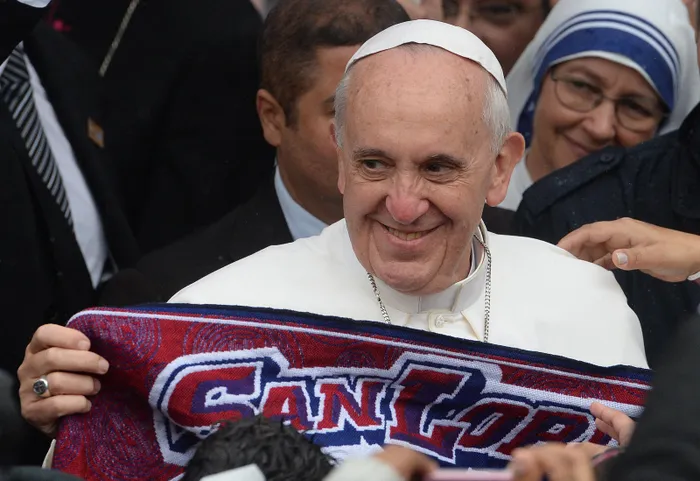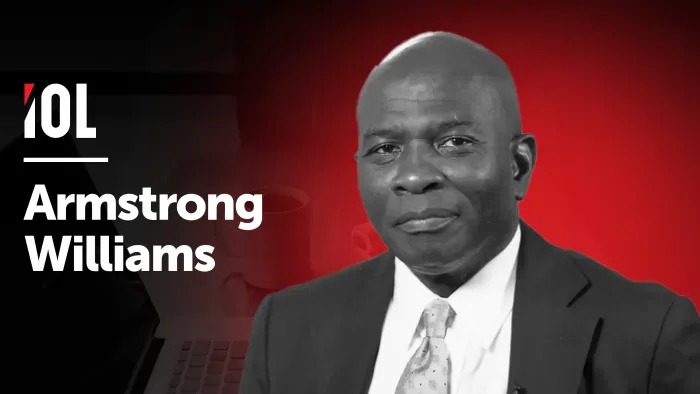Reflections on Pope Francis and the Papacy

Armstrong Williams explores the complex legacy of Pope Francis, from his compassionate stance on migration to his controversial views on the papacy and its alignment with Jesus's teachings.
Image: Yasuyoshi Chiba / AFP
By Armstrong Williams
Pope Francis, like his predecessors beginning with Peter, was in apostolic succession to Jesus. His passing at age 88 after serving more than 12 years as Pope provides a fitting moment to reflect on his tenure and Popes as apostles of Jesus.
Pope Francis championed compassion and care for migrants in the spirit of the parable of the Good Samaritan. Their number has mushroomed in a world earmarked by violence and upheaval, i.e., a staggering 122.6 million as of June 2024. Yet the world turned a deaf ear. Mass deportations climbed. Anti-immigrant politics and political parties flourished. President Donald Trump was elected substantially because of anti-immigrant fervor. But that is no criticism of Pope Francis. Moral suasion counts for little amidst the iron law of the universe: “The strong do what they can and the weak suffer what they must,” as Thucydides observed thousands of years ago.
Pope Francis was a strong voice for the environment. He issued a comprehensive encyclical addressing pollution, climate change, water, biodiversity, global inequality, a deterioration in the quality of life, and voice disappointment at the anemic response. National pledges to slash pollutants are honoured more in the breach than in the observance. Notwithstanding Pope Francis’ exhortations, global pollution was climbing at his death.
The Pope assailed Israel’s retaliation in Gaza to Hamas’ October 7, 2023, industrial scale murders and kidnapping as “cruelty,” not “war.” He pleaded for a ceasefire as the carnage intensified.
When Pope Francis died, nothing changed on the international chessboard. Financial markets were undisturbed. When a successor is elected, the world will hardly notice after the first 24 hours. As Soviet dictator Joseph Stalin reportedly asked Winston Churchill at Potsdam after World War II in dividing up the world, “The Pope! How many divisions has he got?”
Pope Francis may best be remembered by his Christ-like humility in declaring “Who am I to judge” in responding to a question about gay priests. On that score, the Pope was echoing the Sermon on the Mount, “Judge not, that you be not judged.”
Let’s move beyond Pope Francis to the institution of the papacy generally. Popes, by definition, profess to be apostles of Jesus. But that characterisation seems dubious or speculative.
Among other things, Jesus famously preached (Matthew 22:21): “Then said He unto them, ‘Render therefore unto Caesar the things which are Caesar's, and unto God the things that are God's.’” In other words, the world of religion is separate and independent from the secular world where raw power and money hold sway. Jesus’ influence was moral suasion based on flawless character, noble purpose, and example. The Son of God did not attract followers by offering money or guns.
Wouldn’t Jesus have disdained Vatican City as a multi-billion-dollar sovereign state over which Popes rule as absolute monarchs? Jesus wielded no secular power. He celebrated penury and deplored money changers by chasing them from the Temple. Jesus instructed his disciples (Matthew 19: 23-26): “It is easier for a camel to go through a needle's eye, than for a rich man to enter into the kingdom of God.”
He urged the rich to sell their possessions to give to the poor. Would Jesus have applauded all the tinsel, ceremony, and glamour that surrounds the Pope, including the Popemobile? Would Jesus have championed the Papal States, the sale of indulgences, the Crusades, the 1054 schism with the Eastern Orthodox, the Index Liborum Prohibitorum, papal infallibility, the Concordat with the Third Reich, and several other excrescences of his teachings?
Doesn’t the papacy distract from Jesus’ magnificent and electrifying sermons conspicuously absent in the modern world? Doesn’t living the Sermon on the Mount in letter and in spirit honor Jesus far more than a pilgrimage to Vatican City?
Wisdom is seeing things in their proper proportion, neither inflating flees into elephants or shrinking elephants into fleas.

Armstrong Williams explores the complex legacy of Pope Francis, from his compassionate stance on migration to his controversial views on the papacy and its alignment with Jesus's teachings.
Image: IOL
* Armstrong Williams (www.armstrongwilliams.com; @arightside) is a political analyst, syndicated columnist and owner of the broadcasting company, Howard Stirk Holdings. He is also part owner of The Baltimore Sun.
** The views expressed here do not necessarily represent those of Independent Media or IOL.
Related Topics:
